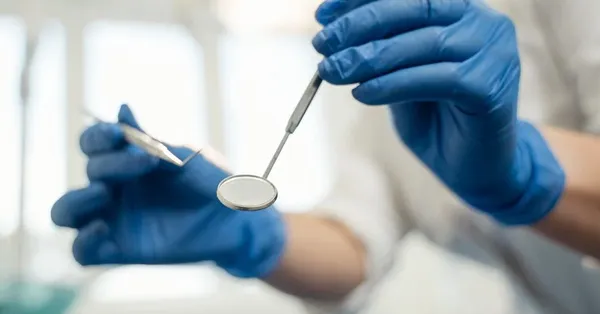How To Tell If You Need an Oral Surgeon Or a Dentist
Practicing good oral hygiene and dental health is an important part of life. To aid in keeping your mouth, teeth and gums healthy, your dentist provides routine checkups and cleanings. However, for more serious dental and oral problems or issues that affect your jaw, your dentist will probably recommend that you see an oral surgeon. Cosmetic dental procedures also require the services of an oral surgeon. Keep reading to learn more about the differences between a dentist and an oral surgeon, and why an oral surgeon is better equipped to perform complex dental procedures.
The Difference Between an Oral Surgeon and a Dentist
You are probably already pretty familiar with what a dentist does. Besides routine checkups, dentists will also provide fillings for cavities, treat early stages of gum disease, fit dentures, perform root canals, and apply crowns and bridges.
An oral surgeon focuses more on areas of treatment that require surgery, such as removing wisdom teeth, inserting dental implants, and treating advanced gum disease.
And while there is some overlap between the two, there is a large difference in the amount of training and education an oral surgeon receives before getting a degree.
A dentist must complete four years of study at a dental school after first receiving their bachelor's degree. During this time, aspiring dentists will also complete clinical practicum experiences. These experiences provide in-depth, hands-on training with the actual diagnosis and treatment of dental issues.
An oral surgeon will spend an additional four to eight years studying oral surgery. During this time, they will also gain hands-on experience performing a number of complex and difficult surgical procedures. After this intensive surgical residency, oral surgeons must pass a board certification examination and a licensing exam.
Which One Do You Choose?
So, when do you see a dentist, and when do you see an oral surgeon? The answer is relatively simple. For common treatments and procedures, you would go to your dentist. For treatments that the dentist won't or can't perform, you'll need to visit an oral surgeon.
Many people choose to visit their dentist first for an assessment of any dental issues they may be experiencing. Then, the dentist may recommend that you visit an oral surgeon as a next step. But it is also okay to contact an oral surgeon first if you know for certain that your problem requires their expertise.
Reasons You Might Need to See an Oral Surgeon
There are a variety of reasons that you might require oral surgery. These include:
Tooth Extraction
One of the most common procedures performed by an oral surgeon is tooth extraction. Your regular dentist might be able to extract easy-to-pull teeth, but wisdom teeth, for example, typically require an oral surgeon because they are more difficult to remove. Other reasons for tooth extraction include a damaged or diseased tooth, an impacted tooth, an abscessed tooth, or a tooth injured from some form of trauma or accident.
Dental Implants
Dental implants also require oral surgery. Whether you are seeking dental implants to replace teeth that have been extracted or if you just want to improve your smile and feel more confident, an oral surgeon can perform this procedure.
Jaw Pain
Chronic jaw pain is hard to live with. Oral surgeons treat chronic jaw pain and related issues. For example, oral surgery might be necessary to repair a jaw that is misaligned.
Oral Cancer
If your dentist notices any areas of concern, he or she will refer you to an oral surgeon, who can remove tumors or provide treatment for oral cancer.
Dental Bone Grafts
Bone grafts to the jaw are often necessary if there has been bone deterioration and an individual's dentures aren't fitting properly anymore. This is a procedure requiring the expertise of an oral surgeon.
Is There Sedation Involved in Oral Surgery?
Understandably, the idea of oral surgery can cause stress and anxiety in many patients. Oral surgeons typically offer a variety of sedation options depending on the procedure that will take place and your level of comfort.
Is Oral Surgery Covered by Insurance?
Just like your regular trips to the dentist, dental insurance will cover some oral surgery procedures. What is covered and how much will depend on your dental plan and the oral surgeon you choose. It is recommended that you do some research into different oral surgery practices with these questions in mind before making your choice.
Final Thoughts
Most oral surgery procedures can be performed and completed within a few hours. There really is nothing to fear from oral surgery, and having a procedure done often results in an improvement in both your oral health and your confidence. If you are experiencing any pain or other dental issues in your mouth, visit your dentist or contact an oral surgeon as soon as possible for a consultation.






5 Stars
based on 48 reviews
5 Stars
based on 15 reviews
5 Stars
based on 11 ratings